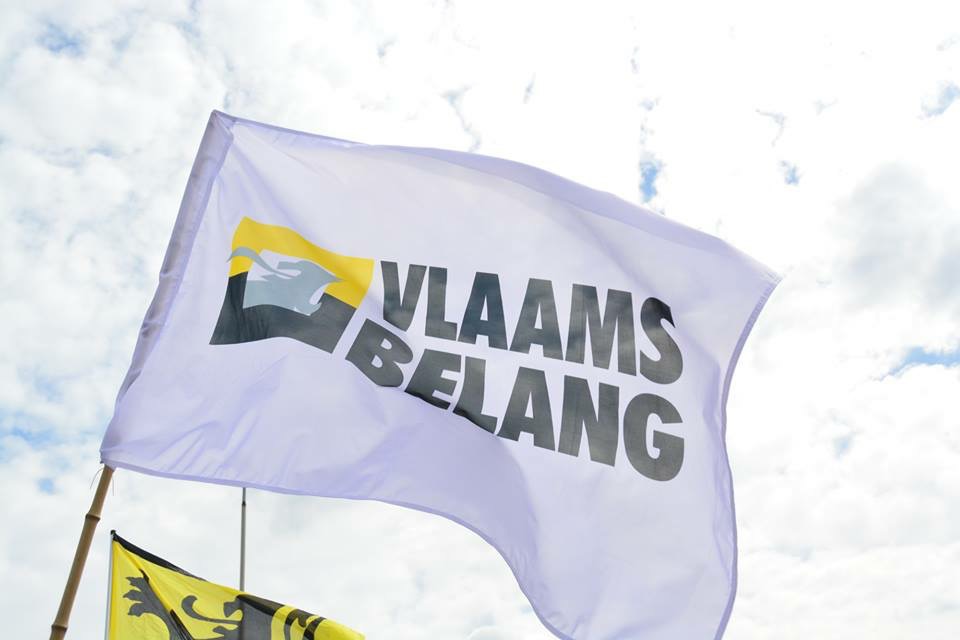The Vlaams Belang: Bucking Expectations of Populist Pandemic Responses

by Dr. Judith Sijstermans (University of Birmingham)
This blog draws on findings from a chapter co-written with Dr Steven Van Hauwaert and soon to be published in ‘Populists and the Pandemic’ (eds. Nils Ringe and Lucio Renno).
When Cas Mudde wrote ‘The Populist Zeitgeist’ in 2004, as he says in a recently published speech, the title and topic were so catchy it felt bound to gain traction. The article became especially popular after 2016’s double whammy of Donald Trump’s election and Brexit. So, when the COVID-19 pandemic hit in 2020, it was reasonable to expect the twin forces of a global pandemic and the ‘populist zeitgeist’ to combine and intensify populist politics. Scholars of populism such as Stavrakakis et al. and Moffitt have previously explored the ways crises (both real and constructed through discourse) are used to demonise establishment elites and defend the interests of ‘the pure people.’
In my initial analysis of the Vlaams Belang’s (Flemish Interest) response to the Coronavirus, I claimed that the crisis was being used by the party to critique the government and establish its credentials as a potential member of a future ruling coalition.
Eighteen months on, I would argue that after linking Coronavirus to their fundamental policies—Flemish independence and anti-migration—the Vlaams Belang somewhat bucked expectations of populist responses to the pandemic, by neither seeking to amplify the sense of alarm generated by the Coronavirus crisis, nor encouraging scepticism about experts as a political strategy.
Closing the Window of Opportunity?
Eighteen months ago, in the initial days of the first lockdown, the Vlaams Belang used the Coronavirus crisis as a ‘window of opportunity’ to criticise the Belgian government. Refusing to support a newly formed government, created to pass Coronavirus regulations, unlike most other opposition parties, the party engaged in regular attacks on government policies. This approach continued for several months. As I noted in my last blog, there was an air of ‘I Told You So’ around their approach. The party leader Tom van Grieken argued in a June 2020 column in the party’s magazine:
You might wish to forget it, but Belgium was a country in crisis before the Coronacrisis. With the highest taxes and debts, borders that leak like a sieve and politicians who cannot look beyond their own interests. A country in which the population – quite rightly – no longer has any confidence in the traditional parties. The total mismanagement of the corona crisis has confirmed that mistrust of the people.
The party levelled a series of critiques against the Belgian government concerning the supply of masks, the extent of testing undertaken, levels of financial support for small businesses, and travel policies. In addition to this, Vlaams Belang published a Coronavirus ‘Blunderbook’ in July 2020, which listed the government’s supposed missteps in handling the crisis.
This blanket opposition and mobilisation against the government’s Coronavirus response did not last, or at least not to the extent apparent in the early days of March 2020. Though populist scholars like Ben Moffitt have suggested populist parties would typically seek to prolong crises, the Vlaams Belang’s attention to the issue dropped considerably after July 2020. Nor did the Vlaams Belang turn towards Coronavirus scepticism as some other populist parties and leaders- like Jair Bolsonaro in Brazil – did. Van Grieken’s single flirtation with a more sceptical position occurred in October 2020, when he refused to download the Belgian government’s track and trace app because he had ‘no confidence in the Belgian state’. He then performed a swift about-turn, by admitting early in November that ultimately his ‘concerns about privacy were unfounded.’
Like many other opposition parties in Belgium and elsewhere, the Vlaams Belang focused its criticism of the government’s Coronavirus policies squarely on the latter’s alleged economic impact. The defence of Flemish small businesses became the main point of attack towards the end of 2020 and throughout early 2021. In this sense, the Vlaams Belang’s response to the Coronavirus crisis did not match pre-existing expectations, with the party displaying the characteristics of anti-establishment parties more generally, rather than an explicitly populist response. Whereas populist parties are anti-establishment by definition, not all anti-establishment politics embody the key characteristics of populism, which emphasizes a rejection of a demonised elite and a promotion of a ‘pure’ people. This latter element was largely missing in the Vlaams Belang’s response. The party focused instead on negating the government’s proposed Coronavirus response at each turn, with populist (either anti-elite or pro-people) rhetoric taking second place.
Closing One Door, Opening Another?
This turn away from the Coronavirus as a focus of the party’s work may be explained by the difference, teased out in Moffitt’s and Stavrakakis et al.’s work, between external crises and those ‘created’ or constructed by populist actors themselves. Perhaps because the Coronavirus crisis is ‘external’ and cannot be ‘controlled’ by the VB, the party sought to pin it onto narratives closer to the party’s core issues, like Flemish independence. The party’s approach is exemplified by their call in June 2020 for an ‘exit plan’ from Coronavirus and an ‘exit plan’ from Belgium. The shift from vociferous opposition to the government to the party’s core messages can be explained by Van Grieken’s focus, over the last two years, on becoming a party of government and policy rather than only an opposition party with a reputation for ‘rebelliousness’ in its rhetoric and ‘street politics.’
In Belgium, the populist radical right walks a careful tightrope: on the one hand shifting attention from COVID to its longstanding claim of a crisis of representation, and on the other hand, emphasising simple anti-establishment politics rather than populist arguments.
Dr. Judith Sijstermans is the Populism in Action Project’s Belgium (Flanders) focused Research Fellow. You can follow her on Twitter here.
